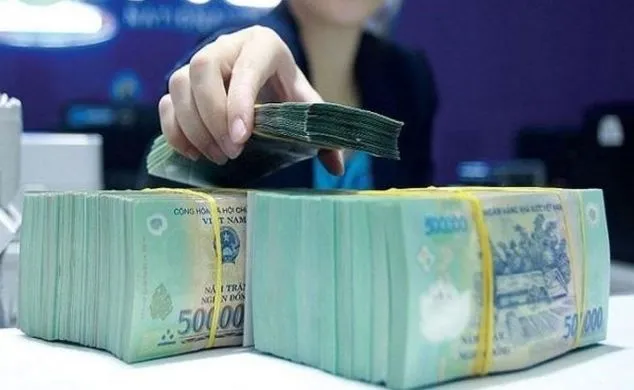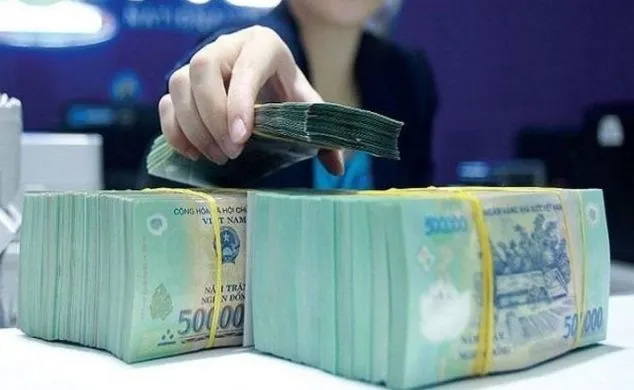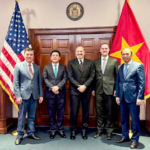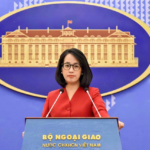On June 14th, with an overwhelming majority of 452 out of 453 National Assembly deputies voting in favor, Vietnam’s National Assembly passed the Law on State Capital Management and Investment in Enterprises.
This new law empowers the members’ council or chairman of a company to decide on salary policies, remuneration, bonuses, and other benefits for employees and management positions within the enterprise. This is a departure from previous laws, where the government dictated these terms for state-owned enterprises.

Illustrative image
The law introduces a new provision compared to existing legislation. Previously, the government determined salary, remuneration, and bonus schemes for employees and managers in state-owned enterprises.
According to the newly passed law, the government will only set the salaries, remuneration, and bonuses for direct representatives of the owner and inspectors in state-owned enterprises.
Additionally, the law stipulates that bonuses for employees, direct representatives of the owner, and inspectors shall be deducted from the enterprise’s post-tax profits.
The direct representative of the owner, the inspector, the general director, and other management positions as stipulated in the company’s charter will receive salaries from the enterprise’s common salary fund.
Regarding the distribution of post-tax profits, the law also includes a provision allowing a maximum deduction of 50% into the Investment Development Fund for business expansion and investment purposes.
State-owned enterprises are also allowed to allocate up to three months’ salary to establish a Reward and Welfare Fund based on the enterprise’s evaluation and ranking.
For enterprises directly serving national defense and security, if there is insufficient profit after tax, the state will provide support to establish a reward and welfare fund of up to two months’ salary based on the enterprise’s evaluation, ranking, and fulfillment of national defense and security tasks.
The remaining post-tax profits can be used to establish funds as stipulated by relevant laws.
No Restrictions on Real Estate Business
Another notable aspect of the passed law is the removal of restrictions on state-owned enterprises investing in the real estate sector, unlike the initial draft presented to the National Assembly.
Previously, the Chairman of the National Assembly’s Economic and Financial Committee, Phan Van Mai, reported on the reception and adjustment of the draft law, stating that some opinions suggested considering a ban on all state-owned enterprises from investing in real estate, allowing only large-scale state-owned enterprises to invest in this field.
According to the Standing Committee of the National Assembly, enterprises with state capital are permitted to conduct business activities in accordance with the law and the state’s orientation as the owner through the company’s charter, development strategy, and other relevant documents.
Therefore, imposing a ban on all state-owned enterprises from investing in real estate, except for a select few large-scale enterprises, would limit their autonomy in business operations. As a result, the Standing Committee decided not to include this provision in the draft law.
The U.S. Proposes Ministerial-Level Negotiations with Vietnam for the First Time
For the first time, the United States has proactively proposed minister-level trade negotiations with Vietnam within the framework of the bilateral Trade and Investment Framework Agreement (TIFA) talks.
“The Prime Minister’s Trip to Three European Nations Yields Significant and Tangible Outcomes”
Prime Minister Pham Minh Chinh, along with his spouse and a high-level Vietnamese delegation, has successfully concluded an official visit to the Republic of Estonia and the Kingdom of Sweden. The delegation also attended the 3rd United Nations Ocean Conference (UNOC 3) and participated in bilateral activities in the French Republic. During this significant trip, Deputy Prime Minister Bui Thanh Son provided an interview to the press, shedding light on the delegation’s endeavors and outcomes.
“Vietnam Joins the Ranks: A New BRICS Partner”
Vietnam has officially become a BRICS Partner Country – a prestigious group of the world’s leading emerging economies. This is a significant milestone in Vietnam’s foreign policy, showcasing its ambition to strengthen the role and voice of developing nations on the global stage.














































